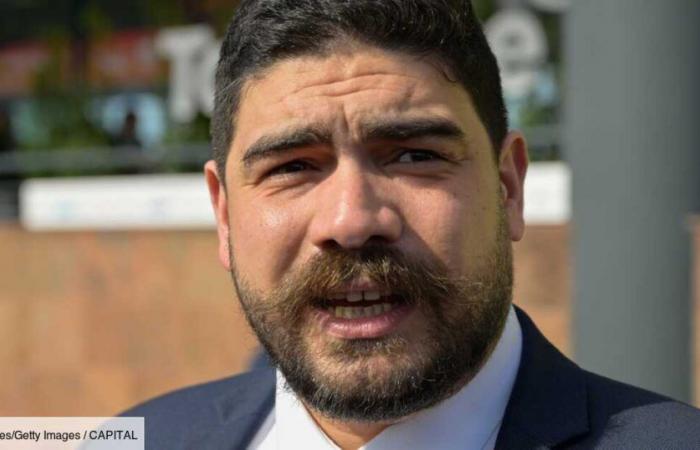
© SOPA Images/Getty Images
– Guillaume Kasbarian confirmed the freezing of the civil service index point.
“Anti-officials”Guillaume Kasbarian? Friday November 8, Benoît Teste, general secretary of the FSU, the first national education union organization, denounced the “unbelievable brutality” of the Minister of the Public Service. For the trade unionist, Guillaume Kasbarian “faces a very serious conflict”tant “anger” among civil servants “is big”. “This matter is serious enough for us to say that we are going to build the broadest possible mobilization, the strongest possible”announced the leader of the FSU.
Tensions intensified between civil servants and their minister. On October 27, the government unveiled a series of measures aimed at saving an additional €5 billion for the 2025 budget, through amendments. Among these announcements, Guillaume Kasbarian specified in Le Figaro to want “increase the number of waiting days for civil servants from one to three, as in the private sector” (except for serious pathologies) and reduce sick leave compensation for civil servants from 100% to 90%.
Civil service: will the reform of remuneration and careers be relaunched by Guillaume Kasbarian?
Because it is the fight against absenteeism that is in the executive's sights. “If we do not react, we will let absenteeism and public finances drift on the subject”justified the minister, recalling that the cost of absenteeism in the public service amounts to “15 billion euros”. According to him, these measures would allow the State to save “1.2 billion euros next year”. At the same time, the project to eliminate categories (A, B and C) of civil servants remained on the government's agenda, a campaign promise for the re-election of Emmanuel Macron in 2022, carried by the former Minister of the Civil Service , Stanislas Guerini, today “put aside”.
Call for a “strike” and “mobilization” of public service unions
All these subjects were on the agenda for the meeting on Thursday, November 7. In the afternoon, Guillaume Kasbarian received the main trade union organizations in what was announced as a spirit of “dialogue and openness”. At the end of the interview, the unions in the sector were ultimately very upset. “We will take the minister's game at its word: three days of waiting time, three days of strike”launched Christian Grolier, secretary general of the UIAFP-FO. The trade unionist said he wanted to work with the inter-union “as wide as possible”. “It’s obvious that the CGT is going to take part in a strike movement”added Sylviane Brousse, coordinator of the CGT public service. Only the CFDT was more nuanced. “The CFDT will put things in order, (…) we will wait for the minister to send us, as he has undertaken, the written response elements” within 24 hours. “And then we will listen to our teams”said the general secretary of the UFFA-CFDT, Mylène Jacquot, Thursday November 7.
Guillaume Kasbarian said at “desire to maintain a constant and frank dialogue with trade union organizations” in order to “to move forward constructively on essential issues for agents and the future of the civil service”, reports AFP. During this meeting, he finally announced that he had “put aside” the merger of categories A, B and C within the civil service. “I have heard the arguments of both unions and agents who say that, for them, these categories are historical, traditional benchmarks, which are important to them”he explained on RTL on Friday, November 8.
He took advantage of this intervention to announce the freezing of the index point, estimating that “the budgetary context does not (…) allow this year to increase the index point”. This does not allow “nor to increase and pay the Gipa bonus”continued the minister. The individual purchasing power guarantee (Gipa) is a bonus distributed to compensate for inflation. The main public service unions are meeting in an inter-union meeting on Tuesday, November 12. There is no doubt that at the end of this meeting, the mobilization timetable will be clarified. The union leaders of the CGT and FO raised the possibility of mobilization “early December”.





